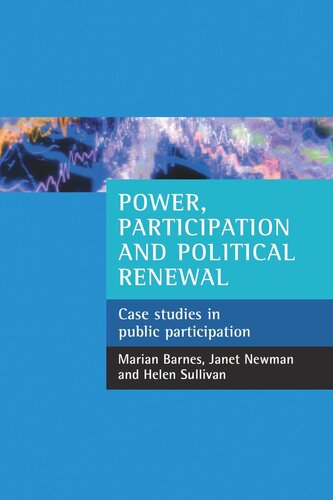

Most ebook files are in PDF format, so you can easily read them using various software such as Foxit Reader or directly on the Google Chrome browser.
Some ebook files are released by publishers in other formats such as .awz, .mobi, .epub, .fb2, etc. You may need to install specific software to read these formats on mobile/PC, such as Calibre.
Please read the tutorial at this link: https://ebookbell.com/faq
We offer FREE conversion to the popular formats you request; however, this may take some time. Therefore, right after payment, please email us, and we will try to provide the service as quickly as possible.
For some exceptional file formats or broken links (if any), please refrain from opening any disputes. Instead, email us first, and we will try to assist within a maximum of 6 hours.
EbookBell Team

0.0
0 reviewsPublic participation is central to a wide range of current public policies - not only in the UK, but elsewhere in the developed and the developing world. There are substantial aspirations for what enhanced participation can achieve. This book offers a critical examination of both the discourse and practice of participation in order to understand the significance of this explosion in participatory forums, and the extent to which such practices represent a fundamental change in governance. Based on 17 case studies across a range of policy areas in two English cities, the authors address key issues such as: the way in which notions of the public are constructed; the motivation of participants; how the interests and identities of officials and citizens are negotiated within forums; and the ways in which institutions enable and constrain the development of participation initiatives. Much of the literature on public participation is highly normative. This book draws from detailed empirical work, theories of governance, of deliberative democracy and social movements to offer a nuanced account of the dynamics of participation and to suggest why experiences of this can be frustrating as well as transformative. This book will be essential reading for students of public and social policy and offers important insights for those directly engaged in developing participation initiatives across the public sector